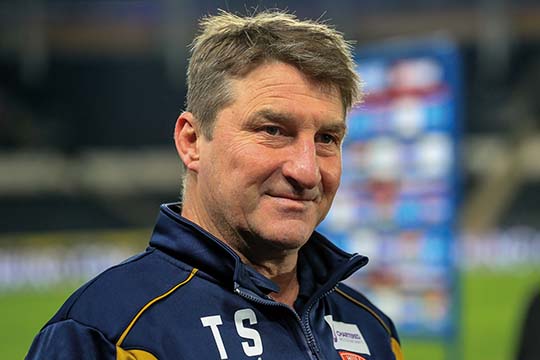 Tony Smith is on board with the clampdown on high tackles and believes that Rugby League must change as a sport to survive.
The start of the new season has seen the book thrown at offences, especially head impacts, with three red cards in the opening weekend of Super League alone for high shots as well as a multitude of sinbins.
Some coaches
Tony Smith is on board with the clampdown on high tackles and believes that Rugby League must change as a sport to survive.
The start of the new season has seen the book thrown at offences, especially head impacts, with three red cards in the opening weekend of Super League alone for high shots as well as a multitude of sinbins.
Some coaches Rugby League must change to survive, says Hull KR’s Tony Smith
 Tony Smith is on board with the clampdown on high tackles and believes that Rugby League must change as a sport to survive.
The start of the new season has seen the book thrown at offences, especially head impacts, with three red cards in the opening weekend of Super League alone for high shots as well as a multitude of sinbins.
Some coaches
Tony Smith is on board with the clampdown on high tackles and believes that Rugby League must change as a sport to survive.
The start of the new season has seen the book thrown at offences, especially head impacts, with three red cards in the opening weekend of Super League alone for high shots as well as a multitude of sinbins.
Some coaches 